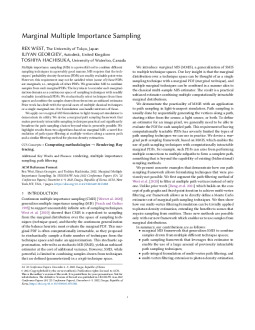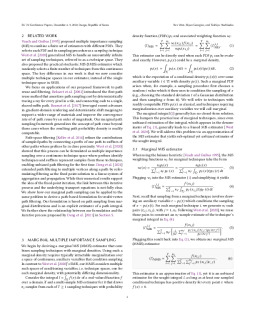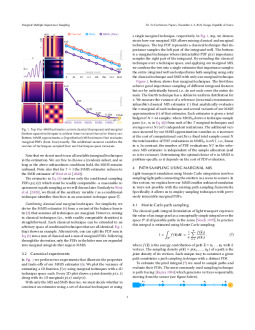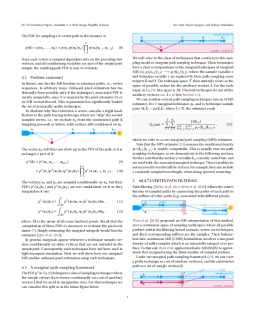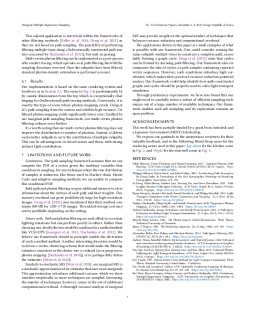Overview
Marginal MIS generalizes stochastic MIS to multiple technique spaces, opening the door to unbiased discrete MIS estimators even when some of the sampling techniques being combined have intractable marginal PDFs
We apply our marginal MIS formulation to light-transport simulation, devising a marginal path sampling framework that makes previously intractable sampling techniques practical. For example, the photon filtering method demonstrated below:
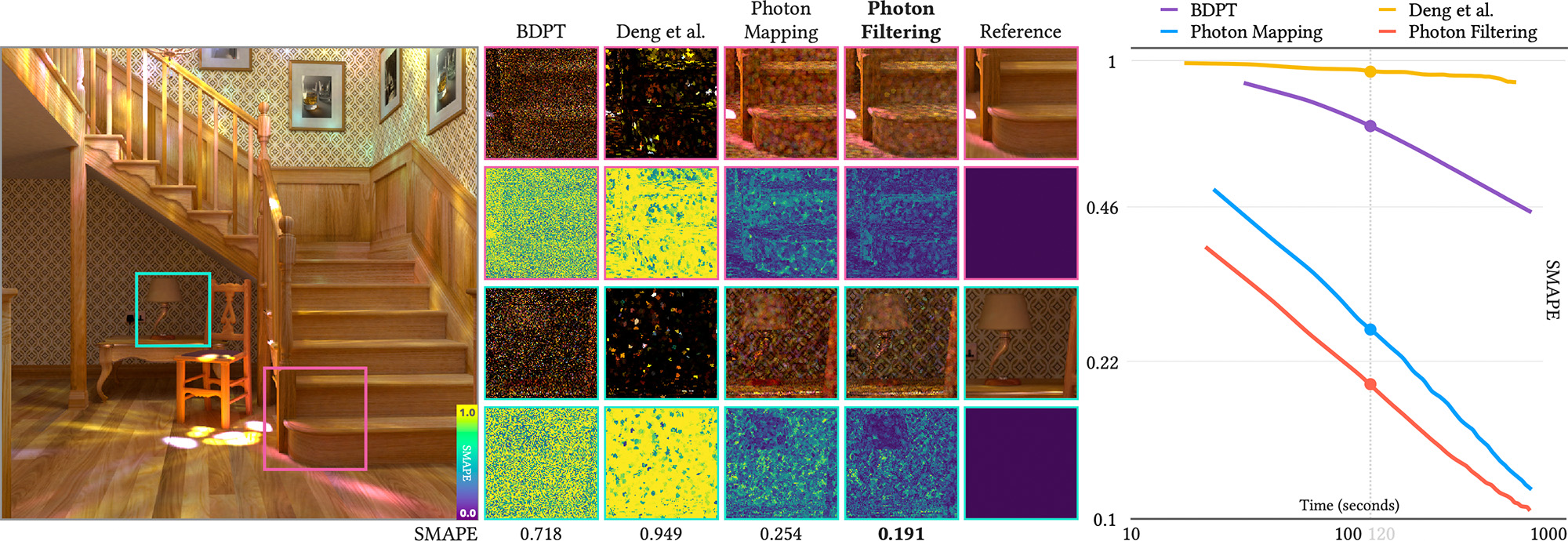
The above scene is lit predominantly by caustics and indirect light from caustics, which is challenging for both bidirectional path tracing and the filtering method of Deng et al. (2021). Photon mapping shows improvement, but exhibits artifacts in indirectly lit areas. Our filtered variant better handles the complex lighting in this scene and shows reduced error in indirectly lit areas. The zoom-ins show results after 120s of rendering, and all methods use a fixed-radius kernel.
Abstract
Multiple importance sampling (MIS) is a powerful tool to combine different sampling techniques in a provably good manner. However, MIS requires that the techniques' probability density functions (PDFs) are readily evaluable point-wise. This requirement may not be satisfied when the PDF of a sampling technique is an intractable marginal, i.e., integral of a joint PDF over some other random variables with no analytical solution.
In this paper we generalize MIS to combine samples from such marginal PDFs. The key idea is to consider each marginalization domain as a continuous space of sampling techniques with readily evaluable (conditional) PDFs. We stochastically select techniques from these spaces and combine the samples drawn from them into an unbiased estimator. Prior work has dealt with the special cases of multiple classical techniques or a single marginal one. Our formulation can handle mixtures of those.
We apply our marginal MIS formulation to light-transport simulation to demonstrate its utility. We devise a marginal path sampling framework that makes previously intractable sampling techniques practical and significantly broadens the path-sampling choices beyond what is presently possible. We highlight results from two algorithms based on marginal MIS: a novel formulation of path-space filtering at multiple vertices along a camera path and a similar filtering method for photon-density estimation.
Presentation Video
Coming soon.
Fast Forward
The SIGGRAPH Asia 2022 fast forward video for the Marginal Multiple Importance Sampling paper. Made entirely in Keynote using the built-in vector art and animations.
Authors

Rex West
PhD Student

Iliyan Georgiev


